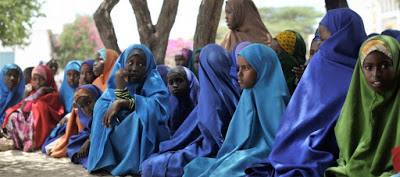WHY ENGAGING RELIGIOUS SCHOLARS IN DIALOGUE COULD HOLD THE KEY TO ENDING FGM IN EAST AFRICA
 |
| Maryam Sheikh’s Story 2018 |
When Maryam Sheikh joined the Population Council to work on preventing female genital mutilation (FGM) among the Somali population of Kenya, progress had stalled. A series of attempts to convince religious leaders to speak out against FGM had ended in frustration and stalemate.
The Population Council, together with other organisations, had tried to convince local religious leaders of the severe medical repercussions of cutting and how it breaches the rights of women and girls. “The outcome was always the same,” said Maryam. “They said it isn’t a priority. It’s not the biggest problem we have, and we don’t know why the West is so interested in the genitalia of our daughters.”
FGM and religious beliefs
FGM is practiced in some 27 African countries, and in parts of Indonesia, Yemen and Iraqi Kurdistan, but the practice is uniquely prevalent in Somali communities. Some 97% of 15-49-year-old women in Somalia have undergone FGM, and rates are persistently high in Somali diaspora communities. Tackling the issue has received increased attention in recent years—and a windfall of USAID funding—but Western attention has all too often meant Western approaches, according to Maryam.
“One of the reasons people continue with the practice is that they believe it is condoned by Islam—that it is an Islamic practice,” she argued. Nowhere in the Qu’ran is FGM explicitly encouraged, but some religious scholars selectively cite verses as justification for the practice.
Organisations working with the Somali community had tried engaging religious teachers, but they had failed to speak to them in the language of Islam. They had spoken about the health implications of cutting, and about the importance of gender equality. But they had failed to discuss scripture and dispel the myth that the Qu’ran supports FGM. “The programme needed to have an Islamic face,” Maryam said. Her boss at the Population Council agreed.
Maryam’s Response
Maryam set about finding influential religious scholars who were respected in Kenya, but who did not come from Somali backgrounds themselves. “Religious scholars who come from communities that practice FGM have been socialised in the same way, and they still carry the same societal baggage. They could read a verse about how you do not mutilate the human body—how you do not change creation, for example—but they don’t link that to FGM because they’re blinded by their upbringing,” she argued.
Maryam identified these non-Somali scholars through their work in addressing social issues, mostly via media appearances and during community engagements. Those selected were articulate, well-respected, and with demonstrable skills in mobilising communities. Maryam used their reputation to entice Somali scholars who hold sway in FGM-practicing communities back to the table.
The Population Council facilitated meetings between the more progressive and conservative scholars. The non-Somali scholars asked the Somali scholars how they justified their support for FGM in scriptural terms, then debated them. According to Maryam, it emerged that most of the evidence presented from the scriptures resulted from misunderstandings and thus misinterpretation of Islamic scripture. A medical expert was always present to clear up any misconceptions and reinforce how harmful cutting is. Progress was slow, but tangible.
The Outcome
“The scholars didn’t go away and begin preaching in the mosques against FGM—they didn’t want to be seen as caving to outside pressure,” recalled Maryam, “but they began to question their personal convictions.”
“We earned their silence,” said Maryam with a smile. “They weren’t castigating FGM prevention work in the mosques anymore, they were no longer telling the community to avoid us. I believe it was due to the fact that we appealed to their conscience though they were not ready to run with the agenda and educate the community.”
Lesson learned
For Maryam, the lesson from the experience was about the importance of working within the cultural and religious frameworks of the communities you are trying to help. Many Western NGOs function on secular principles, arguing against FGM from the perspective of gender equality or health outcomes. But when harmful practices are justified through religion, prevention strategies must work accordingly. Understanding these provided a route through seemingly impossible terrain.
Biography
Maryam Sheikh Abdikadir is a Kenyan development practitioner, researcher and programmer with over two decades of experience working on human rights with a special focus on child protection. The mother of two is passionate about ending violence against children and women, and has dedicated her life to FGM abandonment. Maryam has an MA in Development Studies from the University of Nairobi and a Graduate certificate on women’s leadership and peacebuilding from Eastern Mennonite University. She is a poet who uses her talent for social change and for advocacy on women and children’s issues.


